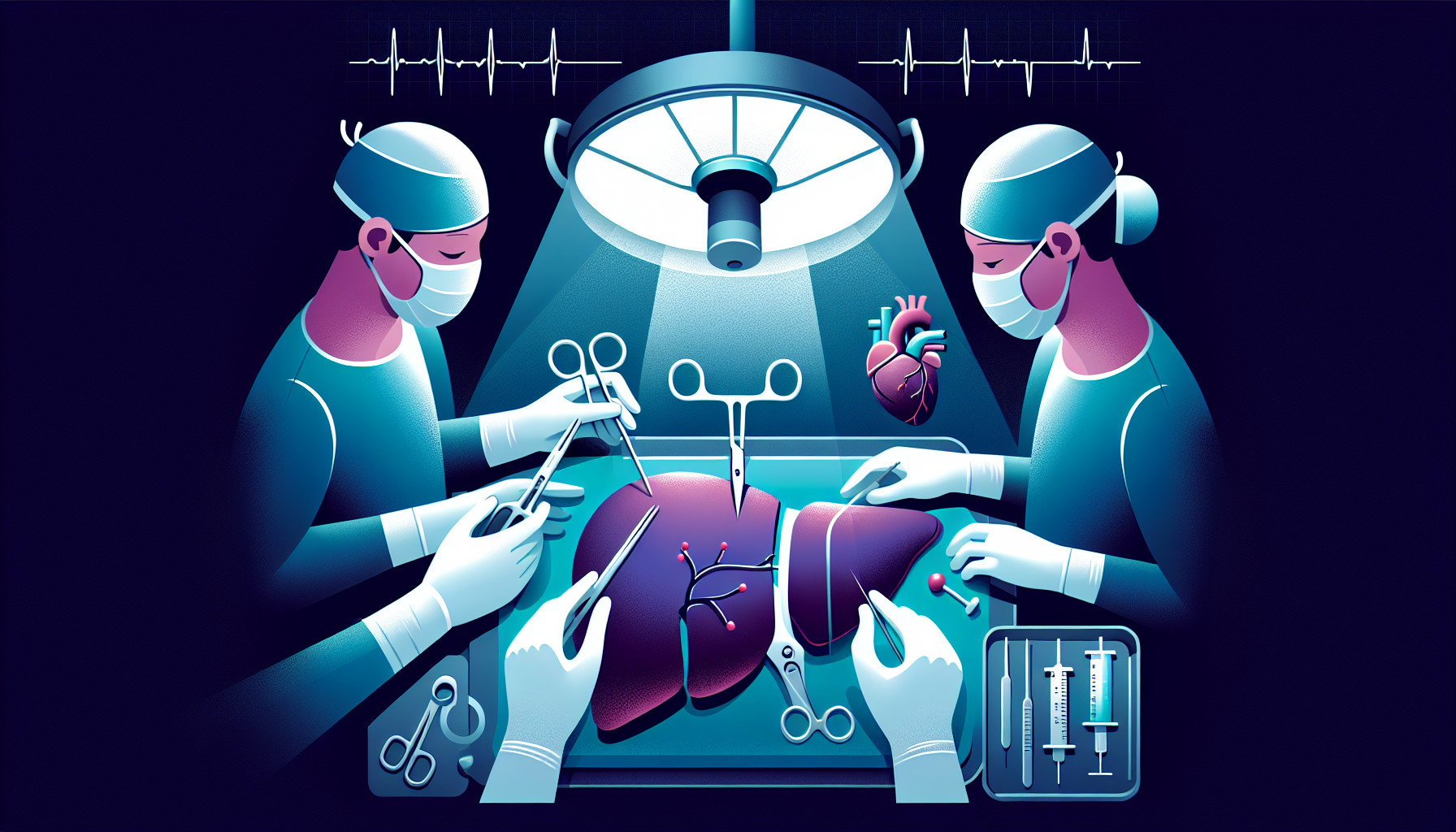Our Summary
This research paper discusses a case where a patient developed a rare blood clotting disorder after receiving a liver transplant. The disorder, known as Factor I deficiency, is very rarely transmitted through liver transplants. The patient in this case didn’t have any blood clotting disorders before the transplant. This situation shows that there’s always a risk of receiving a disease from a donor during a transplant. It also suggests that the current blood tests used to evaluate potential organ donors might not be thorough enough to predict this risk.
FAQs
- What is the rare blood clotting disorder mentioned in the research paper?
- Is it common to acquire diseases from a donor during a liver transplant?
- Could the current blood tests for potential organ donors be improved to better predict the risk of transmitting diseases?
Doctor’s Tip
One helpful tip a doctor might tell a patient about liver transplant is to carefully follow post-transplant medication and treatment regimens to prevent complications and ensure the success of the transplant. This includes taking immunosuppressant medications as prescribed, attending all follow-up appointments, and maintaining a healthy lifestyle through proper diet and exercise. It’s also important to communicate any changes in health or symptoms to your healthcare team promptly.
Suitable For
Typically, patients who are recommended for a liver transplant are those who are suffering from end-stage liver disease or acute liver failure that cannot be managed with other medical treatments. Some common indications for liver transplant include:
- Chronic liver diseases such as cirrhosis due to hepatitis B or C, alcoholic liver disease, non-alcoholic fatty liver disease, autoimmune hepatitis, primary biliary cirrhosis, and primary sclerosing cholangitis.
- Acute liver failure, which can be caused by drug overdose, viral hepatitis, or other acute liver injuries.
- Liver tumors such as hepatocellular carcinoma that are not amenable to surgical resection or other treatments.
- Genetic liver diseases such as Wilson’s disease, hemochromatosis, and alpha-1 antitrypsin deficiency.
- Rare liver diseases such as Budd-Chiari syndrome or hepatic vein thrombosis.
Patients who are considered for liver transplant undergo a thorough evaluation process to determine their eligibility for the procedure. This evaluation includes assessing the severity of their liver disease, overall health status, and potential risks and benefits of the transplant. Patients with a high likelihood of benefiting from a liver transplant and a good prognosis following the procedure are typically recommended for transplantation.
It is important to note that each patient’s case is unique, and the decision to recommend a liver transplant is made on a case-by-case basis by a multidisciplinary team of healthcare professionals, including hepatologists, transplant surgeons, transplant coordinators, and social workers. The ultimate goal of liver transplantation is to improve the patient’s quality of life and prolong their survival.
Timeline
Before liver transplant:
- Patient is diagnosed with end-stage liver disease and is evaluated by a medical team for a liver transplant
- Patient undergoes extensive medical testing, including blood tests, imaging studies, and consultations with various specialists
- Patient is placed on a waiting list for a suitable donor liver
- Patient may experience symptoms related to their liver disease, such as jaundice, fatigue, and abdominal pain
After liver transplant:
- Patient undergoes surgery to receive the donor liver
- Patient is closely monitored in the intensive care unit for several days post-transplant
- Patient may experience complications such as infection, rejection of the donor organ, or side effects from immunosuppressive medications
- Patient undergoes regular follow-up appointments and blood tests to monitor the function of the transplanted liver
- Patient may need to make lifestyle changes, such as following a strict medication regimen and maintaining a healthy diet and exercise routine
- Patient may experience improvements in their overall health and quality of life, including resolution of symptoms related to their liver disease
What to Ask Your Doctor
Some questions a patient should ask their doctor about liver transplant include:
- What is the success rate of liver transplants at this hospital or transplant center?
- What are the potential risks and complications associated with a liver transplant?
- How long is the recovery process and what can I expect during this time?
- What medications will I need to take after the transplant and what are the potential side effects?
- How often will I need to follow up with you or a transplant specialist after the surgery?
- What lifestyle changes will I need to make to ensure the success of the transplant?
- How will I know if my body is rejecting the new liver and what should I do if this happens?
- Are there any specific dietary restrictions I need to follow after the transplant?
- How long can I expect the new liver to last and what factors can affect its longevity?
- Are there any alternative treatment options to consider before proceeding with a liver transplant?
Reference
Authors: Milani S, Aliakbarian M, Amouian S. Journal: Exp Clin Transplant. 2019 Oct;17(5):692-694. doi: 10.6002/ect.2016.0338. Epub 2017 Sep 26. PMID: 28952920
